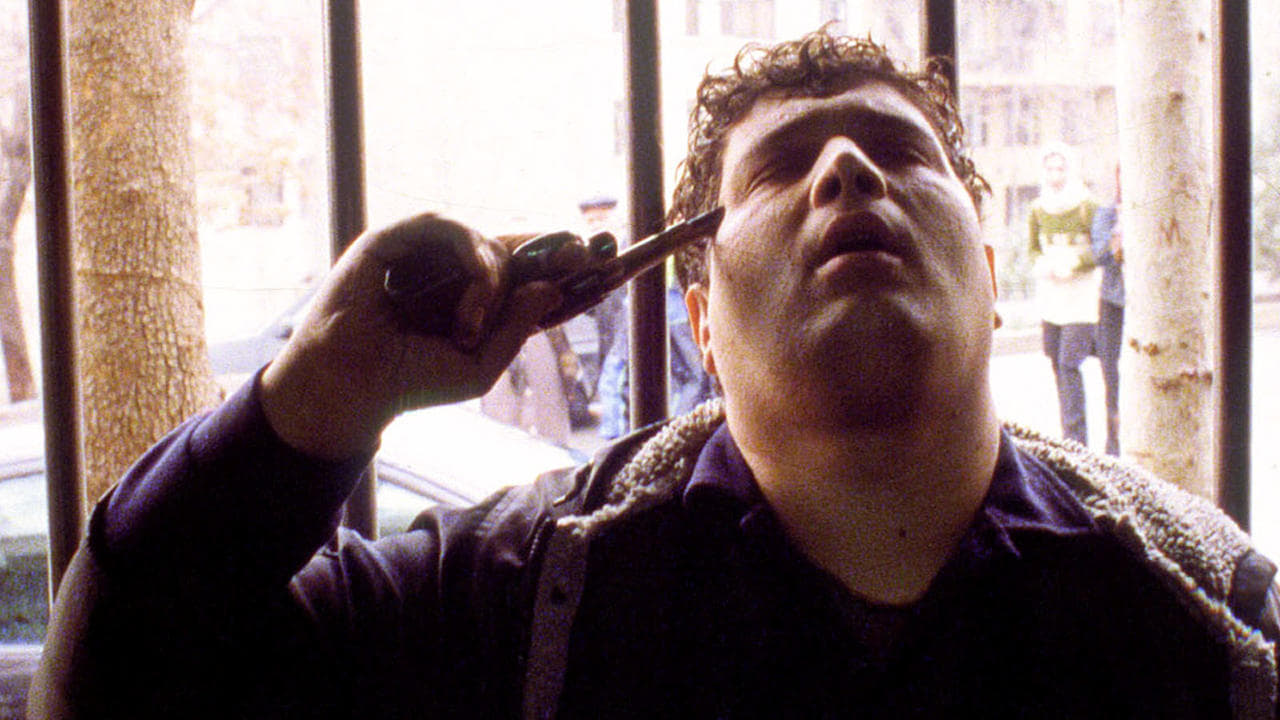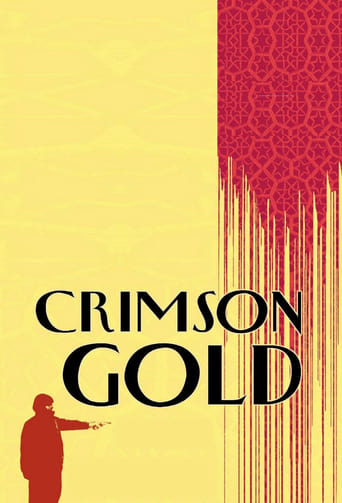Softwing
Most undeservingly overhyped movie of all time??
Stellead
Don't listen to the Hype. It's awful
Siflutter
It's easily one of the freshest, sharpest and most enjoyable films of this year.
Janae Milner
Easily the biggest piece of Right wing non sense propaganda I ever saw.
Theo Robertson
I always go in to a film open minded. If we're talking contemporary Iranian cinema then it almost certainly means one thing - static , neorealist cinema where the characters speak Sorani or Farsi instead of Italian. If there's one ironic thing in life you should make a note of then that is always expect to be surprised and CRIMSON GOLD took me out of my complacency and surprised me Directed by Jafar Panahi from a screenplay by Abbas Kiarostimi , this is the twin counter-offensive by the purveyors of Iranian New Wave cinema and both film makers exceed themselves in much the same way as CRIMSON GOLD exceeded my expectations. This is a film that mirrors the existentialist ethos of New Hollywood , a peak of 20th Century American film making and probably the best role model any aspiring film maker can learn from and I found myself constantly reminded of a criminally underrated Hollywood movie from 1978 called STRAIGHT TIME CRIMSON GOLD is essentially a crime drama , but the subtext screams despite individuals committing crimes against other individuals in pursuit of material greed this is relatively small fry compared to the crimes inflicted against the individual by a self elected self serving theocratic elite on the grounds of metaphysical principal The plotting isn't all that important . What is important is a number of pivotal scenes featuring Hussein ( An unfortunate name for a Persian) and how he fits in to the spectatorship of life in general and present day life of a deeply unpopular theocracy in particular . Perhaps the two most important ones are Hussein's conversation with the Pasdaran footsoldier outside an illegal party and the scene inside the house where nail varnish is mistaken for menstrual blood It goes without saying this was banned in Iran by The Ministry Of Culture And Islamic Justice for being "Too dark" and we're not talking about the cinematography here. I caught the film on youtube and unsurprisingly youtube internet access is impossible in Iran thanks to The Ministry Of Culture And Islamic Justice so if you've got the chance to see CRIMSON GOLD please watch it and count your secular democratic blessings which are presently denied to the oppressed people of Iran
AfroPixFlix
Incredible. Director Jafar Panahi pours you into the psyche of Hussein, an impoverished Iranian pizza deliveryman with dreams of a wealthy life. It dawned on me that I had seen strains of his character before, in the great American story of Bigger Thomas in Richard Wright's NATIVE SON. TAXI DRIVER, of course, is comparable, but far less subtle. Hussein's character is multi-layered, and you can easily miss Panahi's whispered clues to his past. Hussein was once a "saintly" war veteran and probably smart student who had health problems requiring cortisone treatments. The results were obesity and depression. He desires to be married to his best friend's sister, another marvelously understated character. Hussein's quest to give her lovely and expensive things becomes his driving want, and his final experience with a Westernized rich kid tips the balance. This film is nothing without Hossain Emadeddin, the actor playing Hussein. His pudgy-faced character stoically endures the spite of arrogant merchants and bullying cops. You can feel an eruption coming. If you recall Jackie Gleason's "The Poor Soul," you will see remnants of the silent, trudging character all over Emadeddin's role. Further out---you may think I'm crazy---but the character has Notorious B.I.G.'s JUICY all over it in physicality and motivation. Back to earth, Panahi's technical skills soared since that fateful moment in THE MIRROR when he decided to keep the camera rolling when the little girl actor essentially quit the set. CRIMSON GOLD's opening has a masterful long-take of a robbery, using a darkened doorway as a frame-within-frame that opens us to street onlookers mirroring our anxiety. An ingenious device to sandwich action between two sets of viewers. The film may seem plodding, but every frame is a gem. A favorite.
ninamohadjer
This was a very interesting and well done movie. I was impressed how the director was able to capture the class clash in the country and how he used Hossein to show the differences of people who live in the same geographical region. While Hossein is mostly used as the "camera" the director shows how the classes have distanced each other and how small a "midlle" class has become in Iran of post 1979. I was mostly impressed by the scene within the jewelry store how the store owner treats two couples completely different, without haven had a full 5 sentence conversation with any of them, but justifying his behavior and ' customer service' simply on the class of his customers.
rdburgo
i just saw this movie yesterday and the question was on my mind all the time, why the camera follow this pizza driver all the time? OK if the director needs to show us something important i agree he must guide us to "see", but in this case i felt bored and cheated because following this guy i didn't see anything. i didn't get the character, i don't know anything about his life, nothing at all, sorry but i don't understand it.anyway it is good to see like curiosity as i have seen in other movie (the mirror) that the capital is a chaos of a city in terms of circulation and how oppressed they are for the religion...

